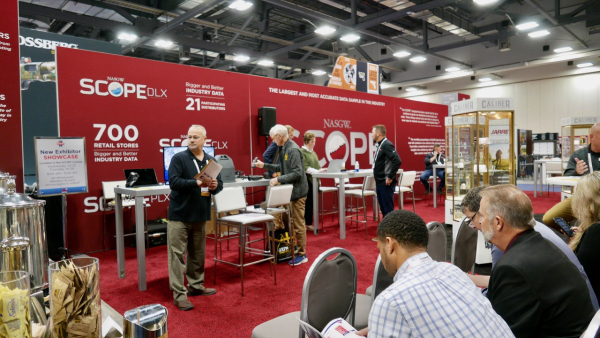Having covered Wall Street in the days when T. Boone Pickens and Irwin Jacobs reached legendary status for their predatory stock purchases, news that Beretta Holding, S.A. had quietly purchased just just short of eight percent (7.735%) of competitor Sturm, Ruger’s public stock brought back old memories.
If Pickens, “king of the greenmailers” or “Irwin the Liquidator” Jacobs bought into your company, changes were coming. Uncomfortable ones for those companies’ executives. Pickens bought enough stock to stage a hostile takeover. If the company decided to fight back, they paid a premium to buyback his stock. Pickens wasn’t the only guy doing it, but he was the best.
FYI, The term “greenmail” is a combination of “greenbacks” and “blackmail.” It wasn’t meant as a compliment.
Jacobs, on the other hand, bought distressed companies with the specific intent of breaking them up, selling off losing pieces and hanging onto profitable ones. He, too, was a master at his craft.
So what does it mean when a requisite Schedule 13D filing says the purchaser “does not currently intend” to seek control” but “plans to engage in discussions with the company’s management and board about the business and potential operational or strategic collaborations” -especially when the purchaser clearly states it “reserves the right to buy more shares, sell holdings, or enter into hedging or other transactions in the future?”
If you’re Ruger management, it means you have new shareholder with a lot of your shares. And as a public company, that means you have to tread lightly, so there isn’t a lot to say quickly.
If you’re Beretta Holdings, you’ve already said pretty much everything necessary. You bought. You disclosed. You’ve fulfilled your public disclosure obligation.
End of story. Except….
Any European conglomerate buying a chunk of a U. S. competitor is wonderful grist for the industry gossip mill. With recent history full of “The Czechoslovak Group Highlights the Benefits of Its Planned Acquisition of Vista Outdoor’s Sporting Products Business,” and “CZG Completes Colt Acquisition” headlines, there’s good reason for speculation. Plus, with a 500-year heritage, Beretta is a company that knows the long game.
The long game isn’t Wall Street’s strong suit. Two thousand plus quarterly results brings a lot of business insight.
Beretta, S.A. clearly states its intention to “continuously evaluate its investment in the issuer.” But they anticipate (read that as expect) “engaging in discussions with members of the issuer’s management and the issuer’s board of directors regarding the issuer’s business, industry developments, and potential areas of operational and strategic collaborations (my italics). That is, without saying anything more, saying plenty. And limiting their interests to Beretta alone doesn’t recognize the company’s large U.S. footprint.
Beretta USA’s manufacturing facilities in Gallatin, Tennessee, produce rifles, pistols and shotguns. But there’s a lot more to their presence. Other properties include companies that already cooperate with Ruger. Both Steiner and Burris optics have been used on Ruger guns at media gatherings. Another property, Norma Precision ammunition, was also well represented, too.
Seeing Beretta/Benelli as the only candidates for “potential areas of operational and strategic collaborations” is being short-sighted. I’ll write what others are only beginning to whisper: what if Beretta is thinking about acquiring controlling interest in Ruger and…gasp…taking it private?
That would be a heavy, but not impossible, lift. Only about 18-27 percent of the company’s stock is held by the general public. And nearly a third of that already belongs to Beretta, SA.
There’s heavy institutional ownership (between 64 and 70%) by investment firms, pension funds and “other” financial institutions.
Insiders (the BoD and managers) only hold about 5%.

Of course, it’s entirely possible that Beretta, S.A. simply recognizes the benefit of holding a consistently performing stock in their undoubtedly impressive holdings. Institutional investors aren’t known for holding underperforming investments. The industry yo-yos, but Ruger has paid dividends (although the amount fluctuates because it’s tied to earnings) for at least the past 16 years.
Ruminating about what two solid, successful companies may or may not do together, ignoring the significant difference in their corporate cultures is pure speculation.
But I will admit I’m hoping to see a “l’etichetta Rossa” shotgun in a future Ruger catalog.
Heading into the National Association of Sporting Goods Wholesalers next week in Grapevine, Texas, this is one topic that will fuel lots of happy hour conversation. Then there’s the quiet changes (upheaval?) at SIG that involve internal restructuring and the dismissal of two very public faces, Max Michel and Lena Miculek.
As always, we’ll keep you posted.
— Jim Shepherd